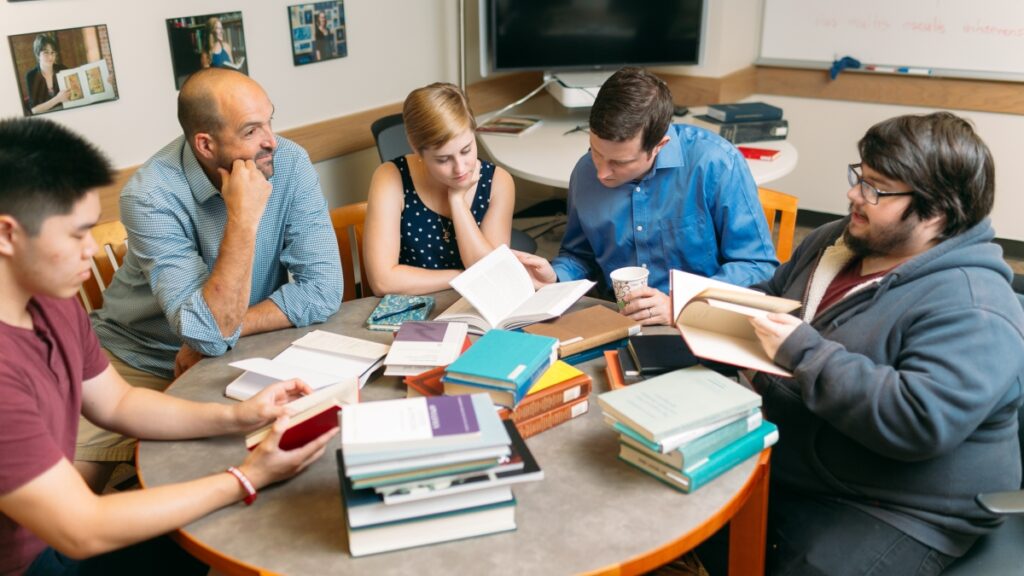Introduction
In today’s interconnected world, understanding diverse cultures and beliefs is more vital than ever. Comparative Religion offers a profound way to explore the spiritual, cultural, and ethical dimensions of humanity’s major faiths. This academic discipline not only enriches personal knowledge but also equips individuals with skills to navigate a globalized society. Whether you’re fascinated by the philosophies of Hinduism, the ethics of Christianity, or the rituals of Islam, studying Comparative Religion opens doors to meaningful careers and personal growth. At Aime Connect, we believe this field empowers you to foster dialogue, promote peace, and build bridges across communities. This article delves into the essence of Comparative Religion, guiding you through its scope, skills, and opportunities, all tailored to help you succeed through our innovative education portal.
Unveiling Comparative Religion
Comparative Religion is the scholarly study of the world’s religious traditions, examining their similarities, differences, and cultural impacts. It explores faiths like Hinduism, Buddhism, Judaism, Christianity, Islam, and lesser-known traditions through a non-sectarian lens. By analyzing sacred texts, rituals, beliefs, and historical contexts, this field fosters a deep understanding of how religions shape societies. It’s not about promoting one faith over another but about appreciating the diversity of human spirituality. For instance, you might compare Buddhist mindfulness with Islamic Sufi practices, uncovering shared themes of inner peace. This interdisciplinary approach draws from history, sociology, anthropology, and philosophy, making it a dynamic and enriching field for curious minds eager to explore global perspectives.

Pathway to Becoming a Professional
To become a professional in Comparative Religion, start with a strong academic foundation. A Bachelor’s degree in Comparative Religion, Religious Studies, or a related field is typically the first step. You can pursue this through universities offering specialized programs. After your undergraduate studies, consider a Master’s degree to deepen your expertise, focusing on areas like interfaith dialogue or religious ethics. For those aiming for academia or research, a Ph.D. is highly recommended, involving rigorous coursework and a dissertation. Engaging in internships with interfaith organizations or cultural institutions can provide practical experience. Networking with professors and professionals in the field is crucial. Aime Connect supports your journey by offering resources and guidance to help you navigate these educational pathways effectively.
Essential Skills for Success
A career in Comparative Religion demands a blend of intellectual and interpersonal skills. Critical thinking is paramount, enabling you to analyze religious texts and cultural contexts with clarity. Strong communication skills, both written and oral, are essential for presenting complex ideas or facilitating interfaith discussions. Cultural sensitivity and empathy allow you to engage respectfully with diverse communities. Research skills are vital, as you’ll often explore historical and sociological aspects of religions. Adaptability and open-mindedness help you navigate differing worldviews. Additionally, proficiency in languages like Arabic, Sanskrit, or Hebrew can enhance your ability to study original texts. Aime Connect’s tailored courses help you hone these skills, preparing you for a rewarding career in this field.
Explore Related Courses
To build expertise in Comparative Religion, consider enrolling in related courses that complement your studies. Courses in World Religions provide a broad overview of major faiths, while Religious Ethics examines moral frameworks across traditions. Interfaith Dialogue equips you with skills for cross-cultural communication. Anthropology of Religion delves into the cultural roles of spiritual practices, and History of Religion traces the evolution of faiths. Philosophy of Religion explores metaphysical questions, while courses in Sociology of Religion analyze religion’s societal impact. Aime Connect offers access to such courses, designed to align with your career goals. These programs, available through our portal, ensure you gain a comprehensive understanding, enhancing your professional prospects in this dynamic field.
Job Opportunities and Career Scope
The scope of Comparative Religion extends across diverse sectors, offering rewarding career paths. Graduates can pursue roles as educators, teaching religion in schools or universities. Interfaith organizations hire professionals to foster dialogue and peacebuilding. Non-profits focused on social justice or international development value the cultural insights of Comparative Religion experts. Government agencies and international organizations seek specialists to inform policy on religious diversity. Roles in journalism, publishing, or cultural consultancy are also viable, where you can write or advise on religious topics. With globalization, the demand for professionals who understand religious dynamics is growing. Aime Connect connects you with placement resources, helping you explore these opportunities and secure meaningful roles.
Top Countries for This Profession
Certain countries stand out as ideal destinations for Comparative Religion professionals due to their cultural diversity and academic opportunities. The United States offers robust programs at universities like Harvard and Miami, with strong demand for interfaith specialists. The United Kingdom, with its multicultural society, supports careers in education and policy advising. India, a hub of religious diversity, is perfect for studying Hinduism, Buddhism, and Jainism, with opportunities in academia and NGOs. Canada’s inclusive policies create a demand for cultural consultants. The Netherlands, known for religious tolerance, supports research and interfaith initiatives. These countries provide vibrant academic environments and job markets, making them excellent choices. Aime Connect’s global network helps you explore opportunities in these regions.
Time to Complete the Course
The duration of Comparative Religion programs varies based on the level of study. A Bachelor’s degree typically takes three to four years, covering foundational courses and electives. A Master’s degree, which deepens your specialization, requires one to two years, depending on whether you study full-time or part-time. A Ph.D., essential for academic careers, can take three to five years, including coursework, research, and dissertation writing. Short-term certificate courses, ideal for professionals seeking specific skills, may last a few months. The time commitment depends on your career goals and study mode. Aime Connect offers flexible programs, allowing you to balance your studies with other responsibilities, ensuring timely completion without compromising quality.
Online or Offline: Which is Better?
Choosing between online and offline study depends on your needs and circumstances. Offline programs offer face-to-face interaction with professors and peers, fostering vibrant discussions and networking opportunities, ideal for immersive learning. However, they may require relocation and fixed schedules. Online programs provide flexibility, allowing you to study at your own pace from anywhere, making them suitable for working professionals or those with busy schedules. Aime Connect’s online courses ensure high-quality content, interactive sessions, and access to expert instructors, bridging the gap between online and offline experiences. For Comparative Religion, online study is particularly effective, as it allows you to connect with global perspectives without geographical constraints, enhancing your learning journey.
Aime Connect’s Special Features
Aime Connect transforms your learning experience with unique features tailored for Comparative Religion students. Our platform offers personalized course recommendations, ensuring you find programs that align with your interests. Interactive webinars with global experts provide insights into religious diversity. Access to digital libraries with extensive resources, including sacred texts and research papers, supports your studies. Our career guidance tools, including resume-building and interview preparation, prepare you for the job market. Community forums connect you with peers and professionals, fostering collaboration. Flexible payment plans make education accessible. Visit https://aimeconnect.com to explore these features, designed to empower you to excel in



